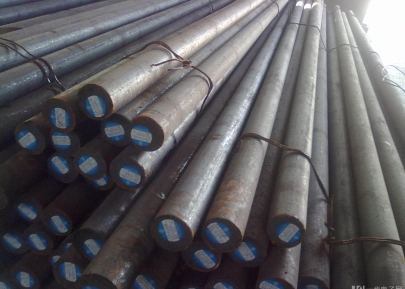Why Tool Steel Plates Are Essential for Mould Base Manufacturing: A Comprehensive Guide
When you're diving into the world of mould base manufacturing, there's a lot to consider. It’s not just about finding the right design or assembling the latest tech. One material often stands out above the rest: tool steel plates. These unassuming yet robust pieces are a game changer in the industry. But why exactly are they essential? Let’s peel back the layers and explore this in-depth.
Understanding Mould Bases and Their Function
Mould bases serve as the foundation for creating molds that shape materials into desired forms. Without a sturdy base, the entire moulding process could be flawed. This leads us to the importance of selecting the right materials that can withstand pressure and maintain precision throughout the manufacturing process.
Why Tool Steel Plates?
When we talk about mould bases, tool steel plates are often the material of choice. But you might ask, what makes them so special? Here are a few reasons:
- Durability: Tool steel plates are built to endure high levels of stress.
- Precision: They maintain dimensional stability under tough conditions.
- Versatility: Adaptable for various mould types, including tile base molding.
The Unique Properties of Tool Steel Plates
Let’s break down some unique properties that make these plates optimal for mould bases:
| Property | Description | Benefit |
|---|---|---|
| Tensile Strength | Ability to withstand pulls and stresses | Prevents deformation during use |
| Heat Resistance | Effective at high temperatures | Enables better control during the moulding process |
| Corrosion Resistance | Capability to resist rust and chemical erosion | Increases lifespan of moulds |
Applications of Tool Steel Plates in Mould Manufacturing
With all these character traits, tool steel plates shine in a variety of applications within mould manufacturing:
- Injection Molding: Essential for precision in all types of plastics.
- Die Casting: Facilitates the production of intricate metal parts.
- Tile Base Molding: A common application where the strength and durability of tool steel are vital.
How to Choose the Right Tool Steel Plate
Choosing a tool steel plate may seem straightforward, yet there are several factors to evaluate:
- Type of Mould: Consider the demands of the moulding process.
- Heat Treatment: Look into proper treatment to enhance performance.
- Thickness: Ensure the thickness meets your specific requirements.
Cost Considerations for Tool Steel Plates
Cost is always a concern! While investing in high-quality tool steel is essential, weighing the price against benefits is vital. Higher initial costs can lead to significant savings in the long run, thanks to durability and lesser maintenance.
Sustainability of Tool Steel Plates
Today’s manufacturing climate leans towards sustainability, and tool steel plates can be reinvigorated or recycled. This eco-friendly angle adds another feather to their cap.
Common Mistakes in Mould Base Manufacturing
Even the experts make mistakes! Here’s a list of common pitfalls:
- Ignoring material properties
- Inadequate testing of prototypes
- Underestimating heat resistance
FAQs About Tool Steel Plates and Mould Base Manufacturing
1. Why are tool steel plates better than regular steel?
Tool steel plates possess additional strength, durability, and better resistance to deformation and wear when compared to regular steel.
2. Can tool steel plates be used for outdoor moulds?
Yes, but they require proper treatment to combat corrosion. Look for options designed specifically for outdoor use.
3. How long do tool steel plates last?
With proper care and maintenance, they can last for many years, significantly outpacing other materials.
Conclusion
In sum, tool steel plates play a pivotal role in mould base manufacturing. Their durability, precision, and versatility make them a beloved choice for professionals in the field. Whether you're working on tile base molding or exploring other moulding techniques, investing in quality tool steel plates can significantly elevate the quality of your production process. The next time you’re considering materials for your mould base, keep tool steel plates at the forefront — your moulding future will thank you!



